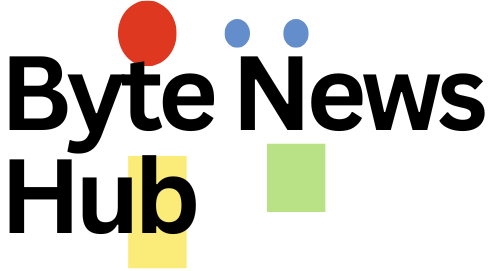Blockchain technology has revolutionized various industries, and its impact on finance and investments has been particularly profound. At its core, blockchain offers a decentralized and secure way to record transactions across multiple computers, ensuring transparency, security, and immutability. These characteristics have made it a game-changer for financial systems, allowing for faster, more cost-effective, and more secure transactions. In this article, we will explore how blockchain technology is transforming the world of finance and investments, examining its applications, benefits, and potential challenges.
1. What is Blockchain Technology?
Blockchain is a distributed ledger technology that records transactions across multiple nodes (or computers) in a secure and transparent way. Each record, known as a “block,” contains a list of transactions and is linked to the previous block, forming a “chain.” This decentralized system eliminates the need for intermediaries, such as banks or payment processors, to verify and validate transactions. Instead, blockchain uses consensus mechanisms, such as Proof of Work (PoW) or Proof of Stake (PoS), to ensure that all participants in the network agree on the transaction’s validity.
The technology is most widely known for being the backbone of cryptocurrencies like Bitcoin and Ethereum. However, its applications extend far beyond digital currencies. From banking and lending to asset management and insurance, blockchain is increasingly being integrated into various aspects of the financial industry.
2. Blockchain’s Impact on Finance: Revolutionizing Traditional Systems
2.1 Decentralization and Financial Inclusion
One of the primary benefits of blockchain in finance is its ability to decentralize traditional financial systems. Traditional banking systems rely on central authorities such as banks, clearinghouses, and payment processors to facilitate transactions. Blockchain, however, removes the need for intermediaries, enabling peer-to-peer transactions without the need for a trusted third party.
This decentralization opens the door to financial inclusion, especially in regions where access to traditional banking services is limited. Blockchain-based solutions, such as decentralized finance (DeFi), allow individuals to participate in financial activities such as lending, borrowing, and trading without relying on traditional banks. For those without access to banking infrastructure, blockchain offers a viable alternative to store, send, and receive money, increasing financial accessibility for underserved populations.
2.2 Faster and Cheaper Transactions
Traditional cross-border transactions can take several days to process and involve multiple intermediaries, each taking a cut of the transaction fee. Blockchain technology dramatically reduces transaction times, enabling near-instantaneous transfers. By cutting out intermediaries, blockchain also significantly lowers transaction costs.
For example, blockchain networks like Ripple (XRP) are specifically designed to facilitate fast and cost-effective international payments. Ripple’s technology allows banks and financial institutions to process cross-border payments in real time, eliminating the need for multiple correspondent banks and reducing costs for both businesses and consumers.
2.3 Increased Transparency and Security
Blockchain’s immutable nature provides increased transparency and security in financial transactions. Once a transaction is recorded on the blockchain, it cannot be altered or deleted, ensuring that all data is permanent and transparent. This transparency helps build trust among parties involved in the transaction, as all participants can independently verify the details of the transaction.
The decentralized structure of blockchain also makes it highly secure. Since there is no single point of failure, it is incredibly difficult for hackers to manipulate the system. Furthermore, advanced cryptographic techniques ensure that transaction data is encrypted and protected from unauthorized access. This level of security is particularly crucial for financial institutions that handle sensitive customer information and large sums of money.
2.4 Smart Contracts: Automating Financial Processes
Smart contracts are self-executing contracts with the terms of the agreement directly written into lines of code. These contracts automatically execute when predefined conditions are met, reducing the need for intermediaries and minimizing the risk of human error.
In finance, smart contracts can automate a wide range of processes, such as loan agreements, insurance claims, and securities trading. For example, in a decentralized lending platform, a smart contract could automatically transfer funds to a borrower once the required collateral is deposited, and repay the lender with interest once the loan term ends. By automating these processes, blockchain reduces administrative costs and increases efficiency in financial transactions.
3. Blockchain’s Impact on Investments: Changing the Investment Landscape
3.1 Tokenization of Assets
One of the most exciting applications of blockchain technology in investment is the tokenization of assets. Tokenization refers to the process of creating digital tokens on a blockchain that represent ownership of real-world assets, such as real estate, stocks, or commodities. These tokens can be easily traded, bought, and sold on blockchain-based platforms, democratizing access to previously illiquid assets.
For instance, tokenizing real estate allows investors to purchase fractional ownership of properties, making real estate investments more accessible to a broader range of investors. Similarly, tokenizing stocks or bonds could enable investors to trade in smaller denominations, lowering the entry barriers for people who may not have the capital to buy full shares.
Blockchain also enhances the liquidity of tokenized assets. Traditional assets like real estate or private equity often have long holding periods and limited liquidity. With tokenization, these assets can be bought and sold on secondary markets, providing greater liquidity and flexibility for investors.
3.2 Decentralized Finance (DeFi)
DeFi is a rapidly growing sector within the blockchain ecosystem that aims to replicate traditional financial services without the involvement of centralized institutions. DeFi platforms allow individuals to access services such as lending, borrowing, trading, and insurance directly on the blockchain. These platforms use smart contracts to automate transactions and ensure security without the need for a trusted third party.
For example, decentralized exchanges (DEXs) like Uniswap and Sushiswap allow users to trade cryptocurrencies without relying on a centralized exchange, while DeFi lending platforms like Aave and Compound allow users to lend and borrow cryptocurrencies without banks. The DeFi space has experienced explosive growth, attracting billions of dollars in locked value and reshaping how people think about investing and managing assets.
3.3 Blockchain in Fundraising: Initial Coin Offerings (ICOs) and Security Token Offerings (STOs)
Blockchain technology has also introduced new ways for companies to raise capital through Initial Coin Offerings (ICOs) and Security Token Offerings (STOs). ICOs allow companies to issue digital tokens to investors in exchange for funding, typically in the form of cryptocurrencies like Bitcoin or Ethereum. STOs, on the other hand, involve the issuance of security tokens, which are digital representations of traditional securities like stocks or bonds.
Both ICOs and STOs have gained popularity as alternative fundraising methods, particularly for startups and blockchain projects. They provide a more accessible and cost-effective way for companies to raise capital compared to traditional methods like venture capital or public offerings. However, the regulatory landscape around ICOs and STOs remains complex, and investors should be cautious and conduct thorough due diligence before participating in these offerings.
4. The Challenges of Blockchain in Finance and Investments
While blockchain has the potential to revolutionize finance and investments, it also faces several challenges that could hinder its widespread adoption.
4.1 Regulatory Uncertainty
The regulatory environment surrounding blockchain technology and cryptocurrencies is still evolving. Governments and financial regulators around the world are grappling with how to regulate blockchain-based transactions, particularly in the context of cryptocurrencies, ICOs, and DeFi platforms. While some countries have embraced blockchain and cryptocurrencies, others have imposed strict regulations or outright bans.
The lack of clear and consistent regulations can create uncertainty for businesses and investors. Until regulators develop a more defined framework for blockchain technology, the industry may face challenges related to compliance, legal risks, and investor protection.
4.2 Scalability Issues
Blockchain networks, particularly Bitcoin and Ethereum, face scalability issues that can impact their ability to handle a large volume of transactions. As more users and transactions join the network, the blockchain can become slower and more costly to use. While solutions such as Ethereum 2.0 and layer 2 scaling solutions like the Lightning Network are being developed to address these issues, scalability remains a challenge for widespread adoption.
4.3 Security Risks
Although blockchain technology is inherently secure, it is not immune to hacking. Vulnerabilities in smart contracts, exchanges, and wallets can expose users to potential risks. For example, DeFi platforms have been targeted by hackers exploiting bugs in smart contracts, resulting in millions of dollars in losses. Additionally, private keys used to access cryptocurrency wallets can be stolen or lost, leaving investors vulnerable to theft.
While blockchain itself is secure, the surrounding infrastructure needs to improve to ensure the overall safety of the ecosystem.
5. Conclusion: The Future of Blockchain in Finance and Investments
Blockchain technology has already made a significant impact on finance and investments, providing a decentralized, secure, and efficient way to conduct transactions and manage assets. As blockchain continues to evolve, its applications in finance will only expand, offering new opportunities for individuals and institutions alike. However, challenges such as regulatory uncertainty, scalability, and security risks must be addressed to unlock its full potential.
For investors and businesses looking to stay ahead of the curve, understanding the role of blockchain in the financial landscape is crucial. Whether it’s through tokenization, DeFi, or blockchain-based fundraising, the future of finance and investments will undoubtedly be shaped by this transformative technology.

